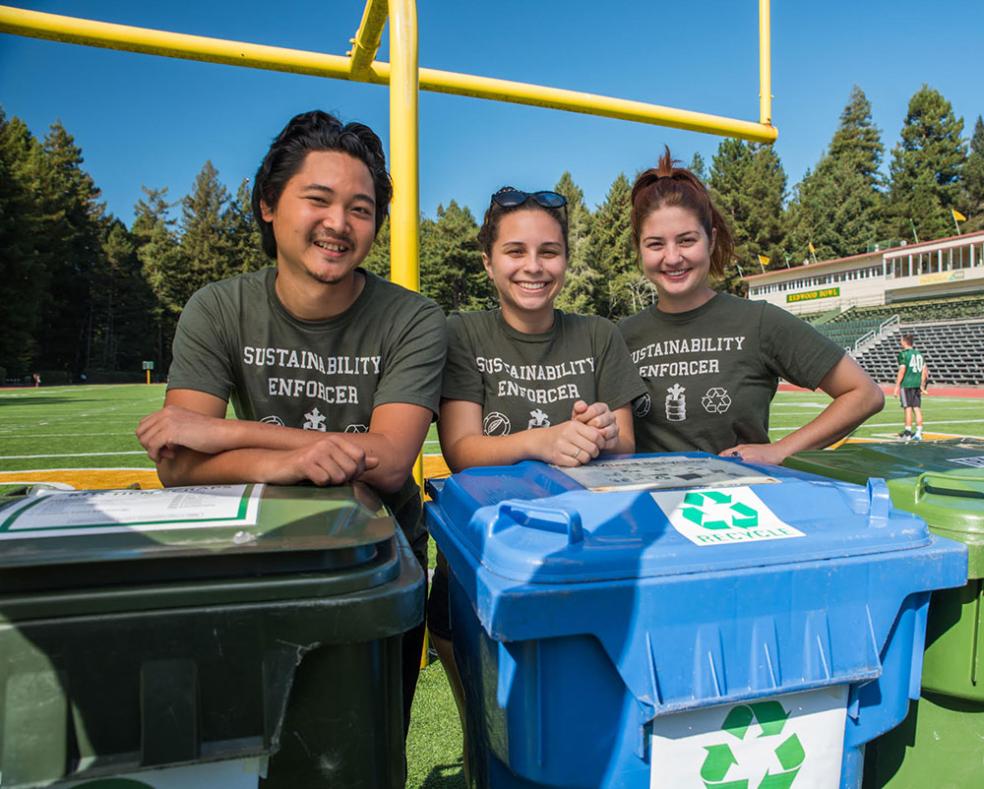
Cal Poly Humboldt has placed third on the Top 10 Zero Waste Campuses of 2023, receiving a Zero Waste Certification through the Post-Landfill Action Network’s (PLAN) Atlas Zero Waste program. The campus is now developing a zero-waste action plan to reduce its solid waste generation further.
"This zero waste certification identifies how far Cal Poly Humboldt has come and how far we still need to go to minimize the amount of material we send to the landfill,” says Morgan King, Cal Poly Humboldt’s climate action analyst. “We are committed to finding solutions to the global waste crisis, and our Zero Waste Action Plan will set a course for changing how we use, buy, sell, reuse, and return everything from single-use packaging to furniture.”
The Atlas Zero Waste Certification calls on campuses to take responsibility for the materials they manage and the waste they produce. The program was launched in April 2021 by PLAN, a national non-profit organization that supports students and staff who lead the zero-waste movement on college campuses across the U.S. Atlas aims to establish a high-level standard for a zero-waste campus, encouraging continuous progress and innovation. It provides a benchmarking tool for campuses to set meaningful goals using a universal metric, which helps to measure and track their progress towards achieving zero waste.
The University has set a goal to become a zero-waste campus by no later than 2045, building on its existing waste reduction efforts, which include Climate Action Plan 2.0 strategies to lower the volume and toxicity of waste generated on campus. With funding from the Humboldt Energy Independence Fund, King enlisted the help of two Atlas fellows to work alongside PLAN in an evaluation and envisioning process within three stages. The student fellows communicated with key campus community members, collected waste generation and disposal data, facilitated workshops to generate ideas and thoughts, and developed reports and recommendations with their findings.
With funding from the Humboldt Energy Independence Fund, King enlisted the help of two Atlas fellows to work alongside PLAN in an evaluation and envisioning process within three stages. The student fellows communicated with key campus community members, collected waste generation and disposal data, facilitated workshops to generate ideas and thoughts, and developed reports and recommendations with their findings.
Earlier this year, PLAN recognized Humboldt's zero waste efforts with a bronze Zero Waste Certification. Atlas uses a unique approach to sustainable material management. They assess the entire material consumption system, from purchasing to disposal. Campuses are evaluated based on their purchasing policies, material handling systems, infrastructure, and communication of expectations for effective material management.
“We are aware that competitions often don’t incentivize the types of system change we need to turn the tide on the ever-growing production of single-use disposable plastics and the demands that the latest IPCC report places on all of us to build systems that effectively reduce consumption at the systemic level,” PLAN wrote in their ranking. “We believe that PLAN’s new assessment framework focuses on systemic impacts.”
Learn more about PLAN’s Atlas Zero Waste here, and see the full rankings here.